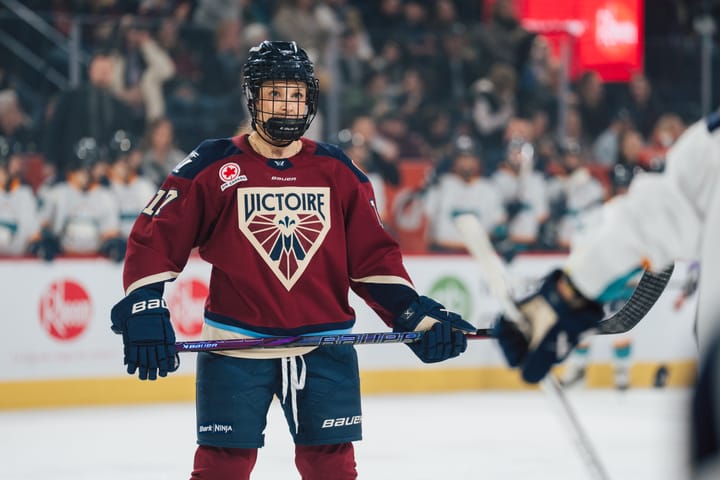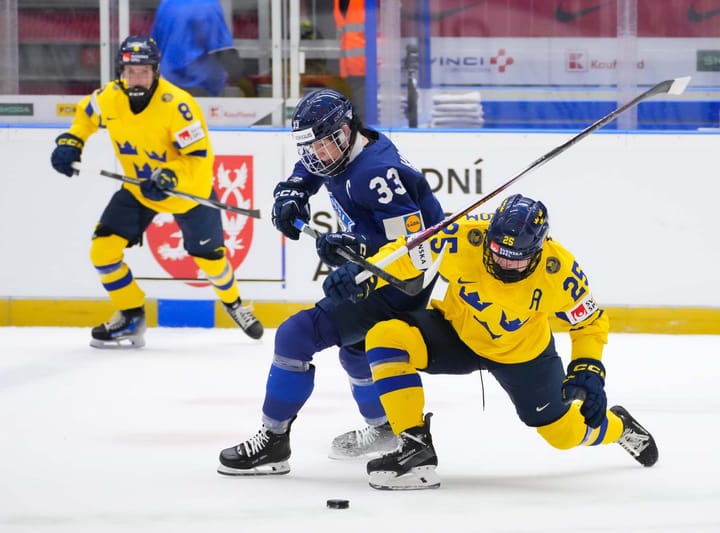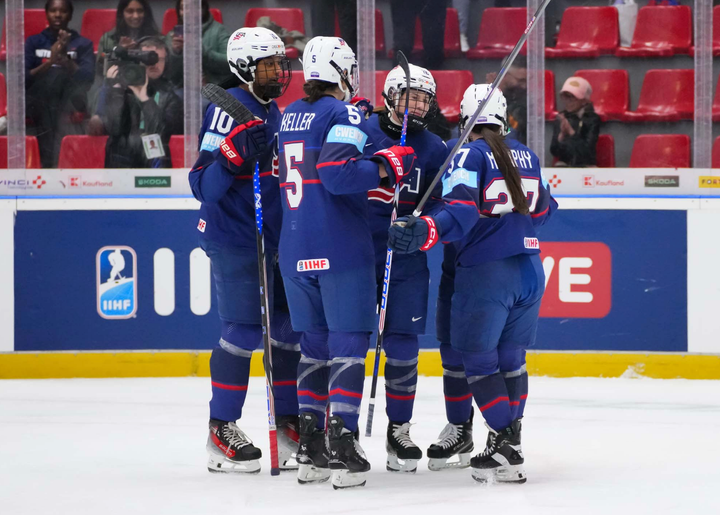Four Nations Report Card: Sweden
Glimmers of hope for the Swedish team
Team Sweden struggled against all opponents this tournament, and was unable to register a win. However, there are glimmers of hope for the young squad, and plenty to build towards.
Starting New, Starting Young
After Pyeongchang, Ylva Martinsen, who was an alternate captain of the Sweden team that claimed silver at the 2006 Olympics, assumed head coaching duties. Four Nations was a good first look at the impact her coaching style and a new team culture might have on the program as time goes on.
This was, by and large, a young roster. Most of the players were born in the late 90s, and the youngest was born in 2001. That context is important to keep in mind when analyzing their results, as many of them were facing players with much more senior team experience.
Scoring Patterns
The Swedes ended the tournament with a -12 goal differential. They only scored six goals in their four games. Although that suggests that they were having difficulty creating offense, a large part of the problem was both Canada and the USA’s ability to overwhelm Sweden’s defense. In actuality, although Sweden didn’t score many goals, they were producing from a variety of different players, which bodes well for the future.
Here's the shot from @PernillaWinberg that found its way to the back of the net to put Team Sweden up 1-0! @Trekronorse pic.twitter.com/bSQfVprMRu
— The Ice Garden (@TheIceGarden) November 10, 2018
Only three Swedish players had more than 1 point at the end of the tournament: Lina Ljungblom, Maja Nylen-Persson, and Pernilla Winberg. Nine other players had one point, which means that players across the roster were becoming involved in creating scoring opportunities. They were unable to hold off offensive juggernauts like Team USA (17 goals for) or Team Canada (12 goals for), but they were only two goals behind their rival, Finland. If the team continues this trend, they should see more consistent scoring across multiple lines, which is always more effective than relying on two or three players for goals.
Sweden only lost their preliminary game against Finland by one goal, and the Bronze medal game only by two. While it’s true that Team Finland was wracked by a stomach flu, this might suggest that Team Sweden is closing in on their rivals.
Not So Swede
The Swedes had 24 penalty minutes during the 4-game tournament. Team USA and Team Canada both took more penalties, but both teams are higher-scoring. For Team Sweden, avoiding the PK will be key to future success. Their 60% PK gave up one powerplay goal in each of their four games. In their second game, the preliminary against Finland, the powerplay goal they gave up was also the game-winner. They also let in Team USA’s only powerplay goal of the tournament, and Sanni Hakala’s powerplay goal against them in the Bronze medal game tied the game at 2.
It wasn’t just the Swedish PK that struggled. They gave up two shorthanded goals this tournament, one to Team USA and one to Team Canada, and scored only one powerplay goal, putting their powerplay at 10%. Clearly, their special teams will need work heading into the World Championships in March, if they want to keep games closer.
Standouts
Goalie Maria Omberg of Luleå HF ended the tournament with the same .892 save percentage as Canada’s Shannon Szabados. Although Szabados was pulled in the gold-medal game against Team USA, that doesn’t necessarily minimize Omberg’s efforts. She faced 62 shots in 2 games, and many of the goals against were products of a defensive breakdown, which is largely out of her control.
Maria Omberg comes up a huge save on Emma Nuutinen #4NationsCup pic.twitter.com/Ev7baEPCeE
— Women's Sports Highlights (@WSportHilites) November 10, 2018
Pernilla Winberg of Linköping HC was the only Swedish skater to score more than one goal. She scored both of Sweden’s goals in the bronze-medal game, both at even strength. On a young roster, the twenty-nine year old forward brings a strong veteran presence to the team.
Lina Ljungblom of Skövde HC had the most points of any Swedish player at the end of the tournament with 3, all assists. She’s only seventeen, and not yet playing on the professional level, so if she’s able to continue producing on that level, she’ll be an extremely valuable player for Sweden moving forward.
Maja Nylen-Persson of Leksands IF was the highest-scoring defender on the team, racking up two primary assists. At eighteen, she’s another young player that demonstrates the bright future of this team.
Final Grade: B-
They really tried.
Statistics in this article were taken from Hockey Canada’s 4 Nations page and individual tracking.





Comments ()